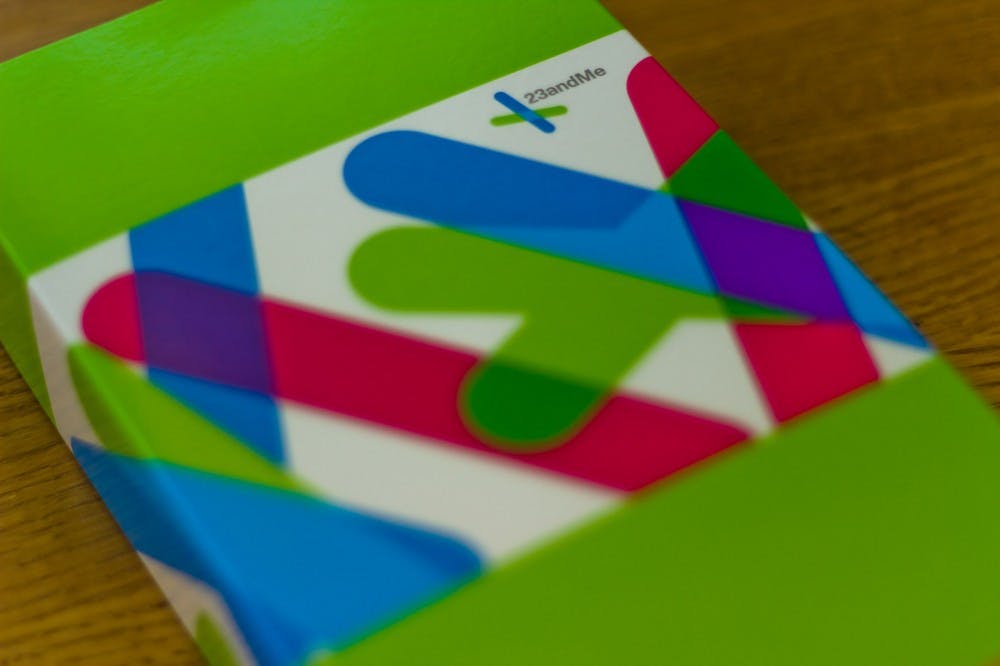People share more in common than they know.
Around 99.9 percent of human DNA is the same with less than one percent of genetic differences, according to National Human Genome Research Institute.
23andMe, a genetic testing company, helps people see where in the world they come from. The company, founded in 2006, offers ancestral and personal health testing kits. It allows consumers to discover information about their DNA by sending in a saliva sample for testing.
The company offers two services. The ancestry kit includes DNA composition from both maternal and paternal ancestors. The health and ancestry service includes an extensive report on the individual’s genetic health, which includes an individual’s risks, traits and carrier status.
Omer Gokcumen, a biological sciences professor, leads the Gokcumen Lab at UB. The lab studies genetic variation in human evolution and studies evolutionary and anthropological genomics.
Gokcumen and members of his lab purchased 23andMe kits to test their own genomes. Gokcumen said he views the rise in popularity of genetic testing kits positively.
“[The rise] shows how genomics is coming to a degree of resolution where we can accurately identify the birthplaces of our ancestors,” Gokcumen said.
Gokcumen said he believes these genetic testing services are accurate, but he also advises individuals to be cautious when reading their results. He said if test results are read wrong, individuals may have incorrect perceptions of their race and ethnicity.
“Even though a good number of the services are careful in their wording, sometimes, it is understood that the percentages of ancestry are eternal or immutable components,” Gokcumen said. “In fact, it is just where your ancestors lived in the past 200 to 300 years.”
Gokcumen said he believes companies like 23andMe are still a novelty, and should continue research for more genetic variants to test. He said these tests become more accurate with additional data.
“These services depend on available data from different populations and currently, these represented populations are not necessarily reflecting true ancestral diversity of humankind,” Gokcumen said.
The ancestry kit also shows the percentage of an extinct hominin species, the Neanderthals, who went extinct around 40,000 years ago. The species is one of multiple hominins whose interbreeding left humans with their own DNA.
Ozgur Taskent, a Ph.D student in the biological sciences department, said Neanderthal genes in humans is discontinuous.
“Although majority of Neanderthal DNA in our genomes is either slightly deleterious or neutral, some [genetic materials] that were advantageous were positively selected,” Taskent said. “This includes genes affecting skin pigmentation, hair color, and immune system genes.”
Taskent said most of the Neanderthal genome no longer exists within humans. He said the remains of DNA that exist within the human genome, however, offer a different explanation to their ending.
“I sort of believe that [Neanderthals] did not go extinct, for some managed to survive within human populations,” Taskent said.
Melissa Sotelo, a senior architecture major, purchased the ancestry kit from 23andMe to learn more about her heritage. She discovered some parts of her ancestry matched what she already knew, but said other ancestral results were a surprise.
Sotelo said the tests showed her how closely related humans are to each other and to celebrate the differences that makes each individual unique.
“In a way, it doesn’t matter where we are from. You know, the generic ‘we all come from the same place,’” Sotelo said. “On the other hand, retaining your culture is also very important, as it shapes who you are as a person and gives you a sense of identity that only you understand.”
23andMe’s ancestry kit is $99, a price Sotelo sees as expensive for college students. However, she encourages others to take advantage of occasional discount prices from the company. The health and ancestry service costs $199.
Kirsten Dean is a staff writer and can be reached at features@ubspectrum.com.





